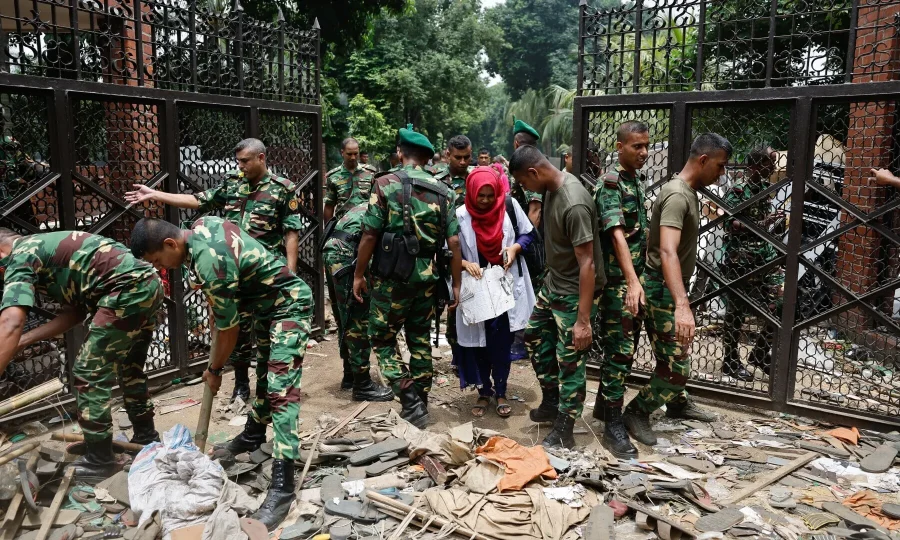Bangladesh’s president dissolved parliament on Tuesday, paving the way for the formation of an interim government, a day after Prime Minister Sheikh Hasina resigned and fled the country following a violent crackdown on a student-led uprising.
A statement from President Mohammed Shahabuddin’s office also said that Hasina’s arch-rival, Bangladesh Nationalist Party chairperson Begum Khaleda Zia, a former prime minister, had been freed from house arrest.
Student protesters had threatened more demonstrations if parliament was not dissolved.
The decision to dissolve parliament was taken following meetings with the heads of defence forces, leaders of political parties, student leaders and some civil society representatives, the presidential statement said.
Nahid Islam, one of the key organisers of the movement against Hasina, said in a video on Facebook with two other student leaders that parliament should be dissolved by 3pm (9am GMT) on Tuesday and asked “revolutionary students to be ready” if that did not happen.
The student leaders said they want Nobel Peace laureate Muhammad Yunus as the chief adviser to the interim government and a spokesperson for Yunus said he had agreed.
Yunus, 84, and his Grameen Bank won the 2006 Nobel Peace Prize for work to lift millions out of poverty by granting tiny loans of under $100 to the rural poor of Bangladesh. He was indicted by a court in June on charges of embezzlement that he denied.
“In Dr Yunus, we trust,” Asif Mahmud, a key leader of the Students Against Discrimination group, wrote on Facebook.
“Any government other than the one we recommended would not be accepted,” Nahid Islam, one of the key organisers of the student movement, said in a video on Facebook with three other organisers.
“We wouldn’t accept any army-supported or army-led government.”
“We have also had discussions with Muhammad Yunus and he has agreed to take on this responsibility at our invitation,” Islam added.
Yunus himself has not commented on the call, but in an interview with India’s The Print, he said Bangladesh had been “an occupied country” under Hasina.—AFP










